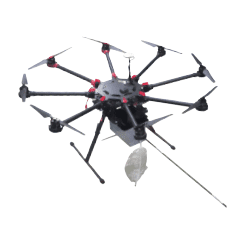Understanding
Chlorine
Cl2
Chlorine gas (Cl₂) is a toxic, greenish-yellow gas with a strong, pungent odor. Moreover, it is approximately 2.5 times denser than air, which means it can accumulate in low-lying areas. Chlorine gas consists of two chlorine (Cl) atoms bound together by a covalent bond, forming a diatomic molecule (Cl—Cl). As a result, it is a highly reactive halogen and is widely used in various industrial processes. In particular, chlorine plays a significant role in disinfection, chemical manufacturing, and water treatment. However, it is also hazardous to health when inhaled or when it comes into contact with the skin.

Advanced Cl2 Detection
Scentroid CTair with Cl2 Ambient Analyzer is engineered for unparalleled accuracy in detecting Chlorine (Cl2) in ambient air precisely.
- Powerful Cl2 Ambient Analyzer
- Precise measurements and alarm systems
- Ensures the capture of fluctuations in Cl2
Scentroid's SIMS3 for
Real-Time Reporting and Analysis
Seamless Data Integration and Visualization

Connect to SIMS3
Connect your Scentroid CTair to the Scentroid Sensor Information Management System (SIMS3) for comprehensive data management.

Visualize Data
SIMS3 provides live feed monitoring, enabling you to visualize Chlorine levels in real-time.

Accessible Anytime
Access detailed reports, trends, and make informed decisions with our user-friendly interface.
Managing CL2 in
Industrial
Environments
- Chemical
- Pulp & Paper
- Plastic Production
- Agriculture
- Water Treatment
Comprehensive Cl2 Monitoring Solutions
End-to-End Air Quality Management with Innovative Technology
From initial detection to detailed analysis, Scentroid offers a complete solution for Cl2 monitoring. In fact, our integrated system ensures you have all the tools necessary to manage air quality effectively. For example, benefit from continuous data flow, automated reporting, and advanced analytics, all designed to support your air quality management goals.
Overall, Scentroid combines cutting-edge technology with years of industry expertise to deliver unmatched air quality monitoring solutions.
Transform Your Air Quality Monitoring
Get Started with Scentroid Today
Ready to enhance your air quality monitoring capabilities? Contact us today to learn more about the Scentroid CTair and SIMS3, and discover how our comprehensive solutions can meet your specific needs. Join the growing number of organizations that trust Scentroid for their air quality and odour analysis requirements.


